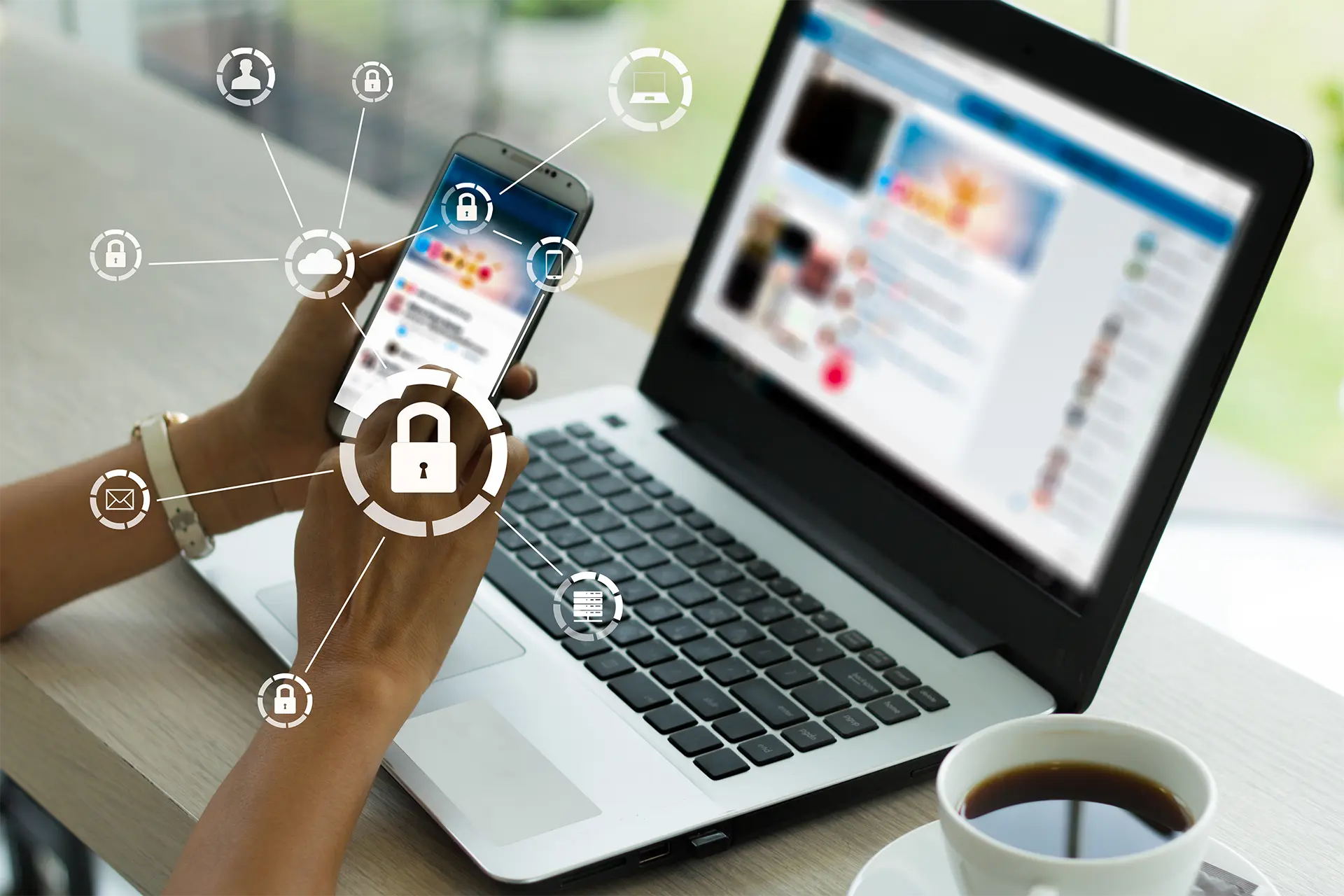Table of contents
- The security of social sharing: what to know
- What not to share on social networks
- How to protect your information
- Awareness is key
- A safe social experience
Social networks have become an integral part of our daily lives. every day millions of people share their thoughts, photos, videos, and personal information on platforms like facebook, instagram, twitter, and linkedin.
The security of social sharing: what to know
Social networks can be useful for staying in touch with friends and family but can also be a fertile ground for personal data theft. This includes information such as phone numbers, birth dates, addresses, and other identifying details. By providing this information on social media, you risk becoming a victim of identity theft and other forms of cyber security attacks.
One of the main risks of indiscriminate sharing of information on social networks is social engineering. This term refers to techniques used by malicious individuals to manipulate people into providing personal information or accessing their social accounts.
Example:
A scammer might create a fake profile and send friend requests to gain access to private information.
What not to share on social networks
To protect your security on social networks, there are some fundamental rules on what not to share. First, avoid posting your phone number or address. This information can be used for malicious purposes such as identity theft or unwanted contact. Also, never share your full birth date. Even though it may seem harmless, this information is often used as a security verification for many websites.
Avoid sharing too much information about family members, especially children. Malicious individuals can use this information to create fake profiles or engage in other fraudulent activities. It is also important not to share specific details about your travel plans. Announcing that you will be out of town for a certain period can invite thieves to target your home while you are away.

How to protect your information
A key step in protecting your personal information is to regularly review the privacy settings of your social accounts. Make sure that only people you know and trust can see your information and posts. Use strong and unique passwords for each account and enable two-factor authentication whenever possible.
- Also, pay attention to what others share about you. If someone posts a photo in which you are present or mentions personal information about you, ask them to remove it if you are not comfortable with the sharing.
- Another important aspect is to be aware of phishing attempts. Do not click on suspicious links or provide personal information in response to unsolicited messages. Remember that most legitimate companies will never ask you to provide sensitive information through social networks.
Awareness is key
Talking about social networks and the security of social sharing is essential to spread awareness. Every day new threats emerge, and technology continues to evolve. Staying informed about best practices for protecting personal data is crucial to maintaining a high level of cyber security.
- Finally, remember that what you share online can have real-life repercussions. Before posting anything, ask yourself if this information can be used against you or if it can jeopardize the safety of others.
A safe social experiences
Social network security should not be taken lightly. Sharing information safely requires attention and awareness. Protecting your personal data and that of others must be a priority to avoid identity theft and other cyber security threats. By following these tips, you can enjoy the benefits of social networks without compromising your security.
FAQ
- What personal information is best not to share on social networks?
It is best to avoid sharing phone numbers, addresses, full birth dates, details about family members, and travel plans. This information can be used for identity theft or other malicious activities. - What can i do to improve the security of my social accounts?
To improve the security of your accounts, use strong and unique passwords, enable two-factor authentication, and regularly review your privacy settings. Make sure that only people you trust can see your information. - How can i recognize a phishing attempt on social networks?
Phishing attempts often appear as unsolicited messages that ask for personal information or include suspicious links. Do not click on unverified links and never provide sensitive information in response to these messages. - Is it safe to accept friend requests from strangers?
No, accepting friend requests from strangers can put your security at risk. Malicious individuals might use fake profiles to access your personal information and use it fraudulently. - How can i protect information about my family on social networks?
Avoid posting personal details about your family members, especially children. If others share information about you, ask them to remove it if you are not comfortable with the sharing. - What should i do if i think my social account has been compromised?
IF you suspect that your account has been compromised, change your password immediately and enable two-factor authentication. Contact the platform’s customer service and follow their instructions to secure your account. - what are the main risks of social engineering on social networks?
Social engineering can lead to identity theft, unauthorized access to your accounts, and fraud. Scammers use manipulation techniques to obtain sensitive information, so it is important to always be cautious and suspicious of suspicious requests.

